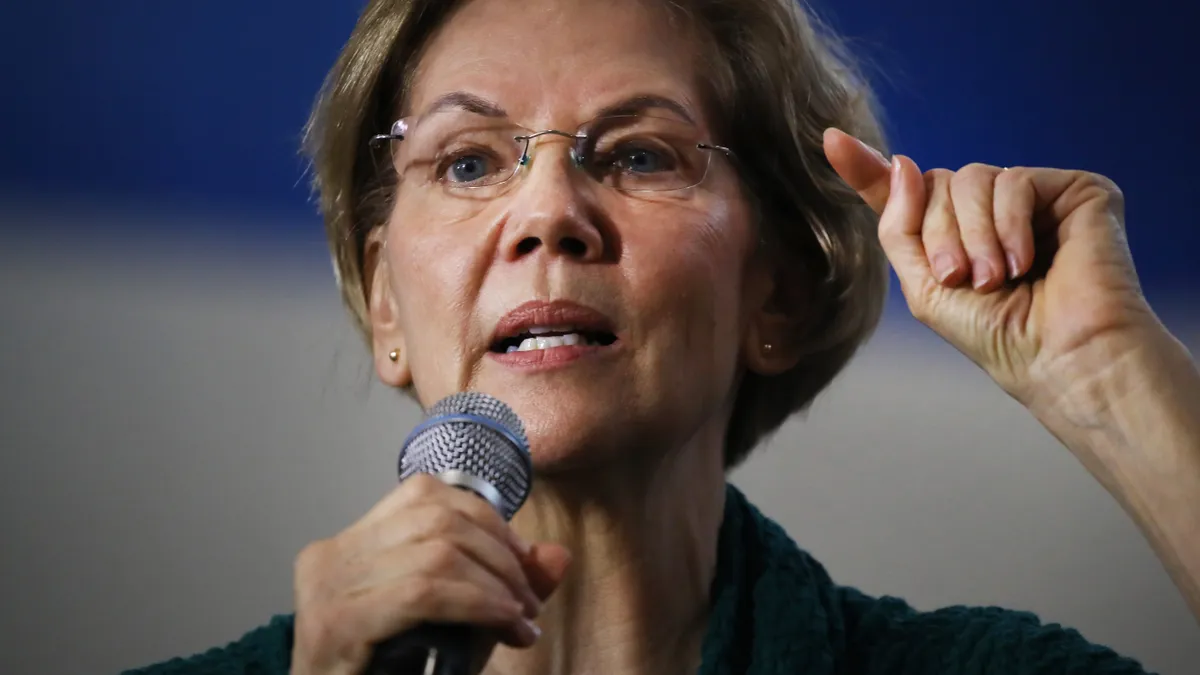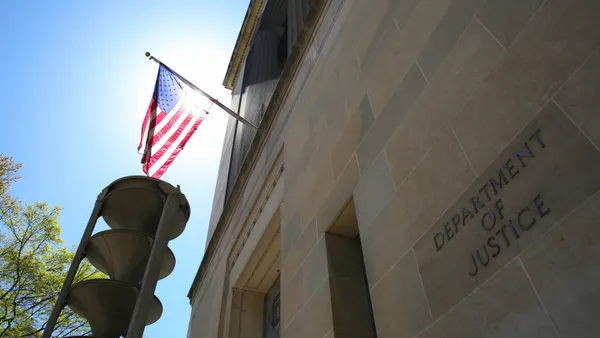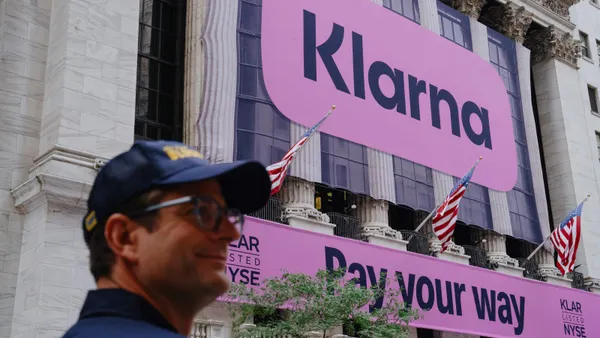Dive Brief:
- Sen. Elizabeth Warren, D-Massachusetts, urged the Consumer Financial Protection Bureau last Thursday to finalize a rule that would cap the amount credit card issuers can charge consumers in late fees.
- Credit card companies charge up to $41 for a late payment, and last year made $14 billion in late fees, Warren said during a hearing of the Senate Banking, Housing, and Urban Affairs Committee. The senator also said that the fees bring in five times the cost of collecting late payments.
- “I support the CFPB’s proposed rule on credit card late fees, and I urge the CFPB to finalize this as quickly as possible,” Warren said.
Dive Insight:
Warren was vocalizing her support for a rule the CFPB proposed in February that would amend the Credit Card Accountability Responsibility and Disclosure Act, also known as the CARD Act of 2009. The proposal would cap credit card late fees at $8 per payment and ban them from exceeding 25% of the minimum payment.
Banks and bank trade groups pushed back hard on that proposal. Banks, consumer finance organizations, credit unions and individuals submitted more than 200 comments on the CFPB’s plan leading up to the May deadline.
Warren and six other senators sent a letter in May to the CEOs of 10 of the largest U.S. credit card issuers requesting details about their companies’ late fee practices, citing the CFPB’s effort to reduce those fees. The issuers included American Express, Bank of America, Capital One, Citigroup, Discover Financial Services, JPMorgan Chase and Wells Fargo.
The card issuers responded, detailing and defending their practices. Meaningful late fees keep borrowers from making late payments, issuers said. They also warned of potential consequences such as more late payments and higher system-wide costs if the CFPB capped late fees as the agency had proposed.
CFPB Director Rohit Chopra challenged those claims during last week’s Senate hearing. “Our analysis shows that [card issuers] have many ways to punish borrowers,” Chopra said. The issuers can raise their interest rates, ding consumers' credit reports, or even sue them, he explained.
Among card issuers, Stamford, Connecticut-based Synchrony Financial and Columbus, Ohio-based Bread Financial are those that stand to be the most impacted by the CFPB’s proposed cap on late fees, because that income makes up a more significant portion of their overall revenue. Synchrony’s CEO Brian Doubles said in July that he expected the CFPB to issue a final rule on the fees in the fourth quarter of this year.
Synchrony declined to speculate when asked when it expected the proposed late fee rule to be finalized. The card issuer directed questions to the CFPB, which declined to comment.











